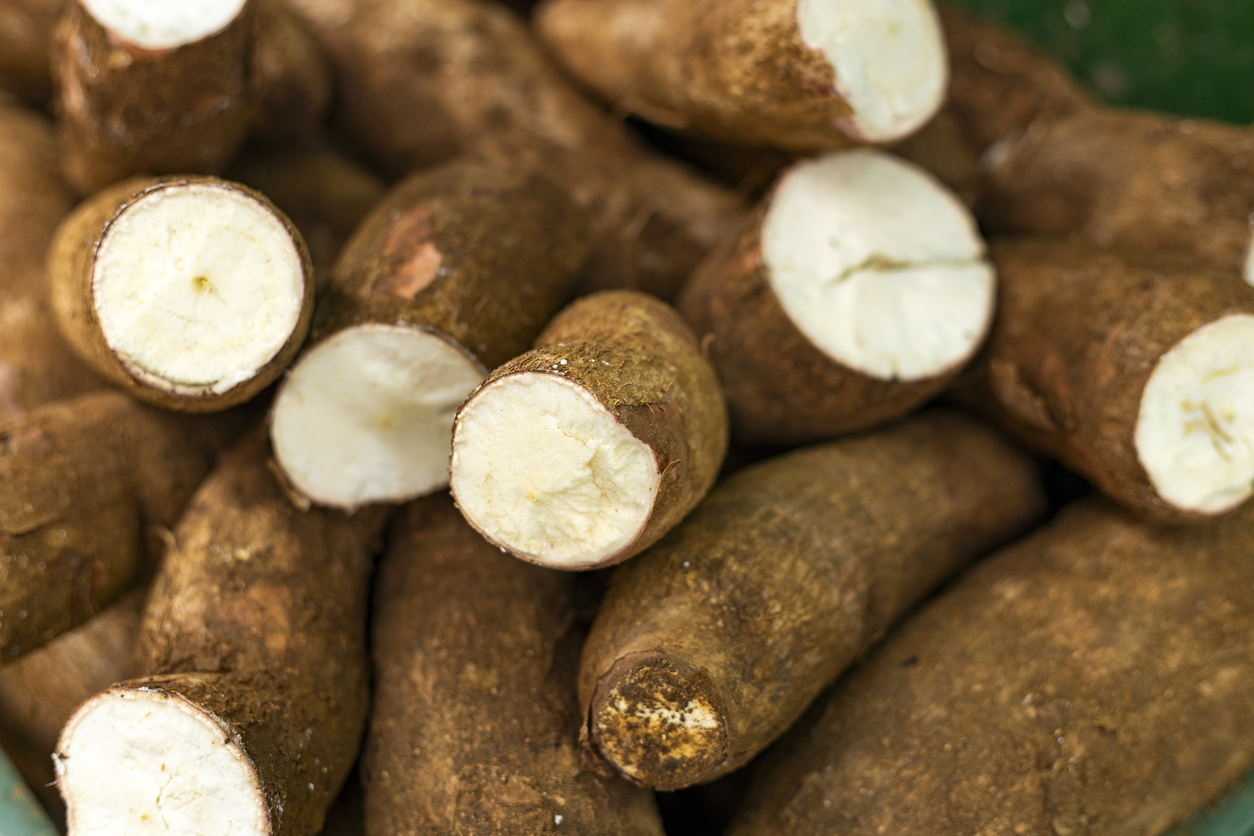
CRISPR-Cas9 Helps Enhance Cassava's Disease Resistance, Drought Tolerance, and Starch Biosynthesis
March 26, 2025| |
A study by scientists at the Chinese Academy of Sciences has successfully used CRISPR-Cas9 to enhance cassava's disease resistance, drought tolerance, and starch content. Published in Tropical Plants, the study paves the way for more efficient cassava breeding programs.
The study identified critical genes associated with cassava mosaic disease (CMD), cassava brown streak disease (CBSD), drought stress response, and starch biosynthesis. By introducing precise edits into these genes, the researchers developed cassava plants with enhanced resistance to CMD and CBSD, two of the most destructive diseases affecting cassava crops globally.
The edited cassava plants exhibited improved drought tolerance, an essential trait in light of the growing challenges posed by climate change. The study also reports that genome-edited cassava plants showed increased starch content, which is beneficial for food security and industrial applications such as bioethanol production. The findings of this research have significant implications for global food security, particularly in developing countries where cassava is the key staple.
For more details, read the news release from the Chinese Academy of Sciences.
| |
You might also like:
- Gene Editing to Produce Bacterial Blight Resistant Cassava
- Scientists Discover the Gene for Cassava Mosaic Disease Resistance
- Experts Share Genetic Transformation Resource for Cassava
Biotech Updates is a weekly newsletter of ISAAA, a not-for-profit organization. It is distributed for free to over 22,000 subscribers worldwide to inform them about the key developments in biosciences, especially in biotechnology. Your support will help us in our mission to feed the world with knowledge. You can help by donating as little as $10.
-
See more articles:
-
Gene Editing Supplement (March 26, 2025)
-
Research and Tools
- CRISPR-Cas9 Helps Enhance Cassava's Disease Resistance, Drought Tolerance, and Starch Biosynthesis
- Researchers Identify Gene Regulating Grain Weight in Wheat
- OsMADS60 Controls Rice Yield Through Auxin Transport
- Yale University Introduces Cas12a-Based Method for Dual Gene Activation and Knockout
-
Read the latest: - Biotech Updates (February 11, 2026)
- Gene Editing Supplement (January 28, 2026)
- Gene Drive Supplement (February 22, 2023)
-
Subscribe to BU: - Share
- Tweet

